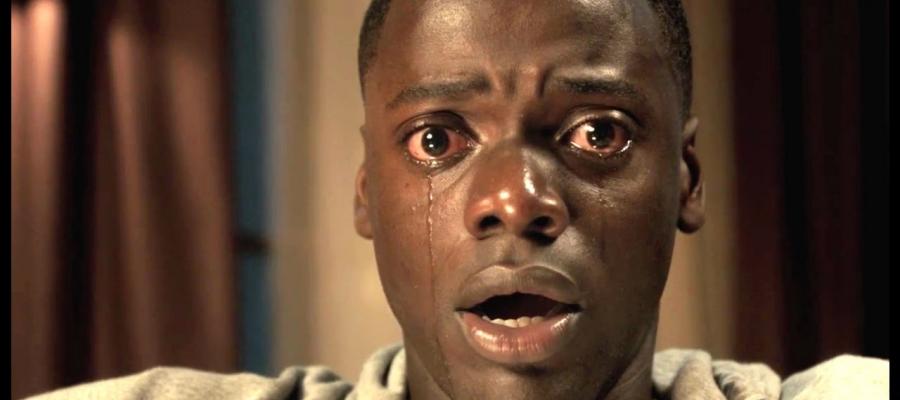Foucault's Concept of Power
12
Apr 2017
What are the mechanisms by which power operates? How much can the workings of power shed light on the concepts and labels applicable to everyday life? Foucault's concept of power is more important than ever.
Read moreIs This Still the End of History?
17
Apr 2017
In 1992, the political scientist Francis Fukuyama became famous for his provocative and much-criticized claim that history had ended. In a recent article in Aeon, Paul Sagar argues that Fukuyama more accurately predicted that societies may fall back into history, and way from liberal democracy.
Read more[AUDIO] Can a Riot be Justifiable?
19
Apr 2017
Political riots: are they a legitimate method for the people to express their discontent, or too chaotic and uncontrollable to be deemed effective? When a demonstration turns violent, can that violence ever be justified?
Read moreTranscending Intersectionality
13
Apr 2017
Intersectional feminism is not a progressive advance over the non-intersectional sort. It is, rather, a rearguard attempt to recover from what I think of as original sin—that is, from a profound and consequential error. The original sin was the sin of treating some men as the unmarked case of man, some women as the unmarked case of woman.
Read moreAre Taxes Fair?
18
Apr 2017
It's Tax Day in America, so we have some questions for you: Do you think taxes are fair? How well do you know your own thoughts about taxes? How easily shaped by priming are your beliefs about taxes? You might be surprised to discover what experimental data shows about this!
Read moreWhy We Need Public Philosophy
28
Apr 2017
The world is a cruel place that has no shortage of suffering. It is no wonder that scholars of all stripes have been pulled by the gravity of the moment to redirect their intellectual talents and capacities for research toward more immediately pressing and urgent questions. It is why public philosophy is more important than ever.
Read morePhenomenology
20
Apr 2017
Husserl founded phenomenology a century ago. Many important philosophers are phenomenologists, like Heidegger, Merleau-Ponty, and Sartre. But what in the world is phenomenology?
Read moreWhy Vote?
24
Apr 2017
Alain Badiou, one of France's premiere philosophers and public intellectuals, recently wrote a column in Le Monde commenting on the current French election. After he runs through characteristics and relative merits of the top four contenders, he comes to an ironic conclusion: there is no reason to vote.
Read more[AUDIO] Political Utopias: Just Wishful Thinking?
26
Apr 2017
Are the political utopias we imagine simply a product of wishful thinking? Can we be too caught up in the promises of theory to see beyond our rose-colored glasses? Or are these utopias real objects to aim for, despite how far away they may seem?
Read moreArt, Origins, and the Fearless Girl
25
Apr 2017
At first sight, Fearless Girl, standing across from Wall Street’s iconic Charging Bull, is a powerful symbol of opposition to patriarchal values, which are at their worst in the male-dominated world of high finance. But if you look to her origins, you might experience an astonishing flip of perspective.
Read more#FrancisOnFilm: Cezanne et Moi
27
Apr 2017
What makes a friend? Cézanne et Moi is the story of the friendship between Émile Zola and Paul Cézanne. It is also a complex commentary on friendship itself: what friends owe each other, what friends should do for each other, and what breaks the bonds of friendship.
Read moreAesthetics for Dogs?
11
Apr 2017
Dogs love art! At least, when that art is designed with them in mind. Check out the first ever canine-centric art show in London. “Tails were wagging like crazy," according to the artist who designed the show.
Read moreCaptivity
08
Apr 2017
Putting a person in a prison deprives him of freedom and autonomy. Putting an animal in a cage does the same thing. That’s a similarity. On the other hand, we typically put people in prison to punish them. We aren’t punishing animals when we put them in zoos or keep them as pets.
Read moreTricks for Political Persuasion
21
Apr 2017
In these polarized times, it's hard to convince anyone of anything that they didn't already believe in. This consistent inability to reach any real mutual understanding can lead some to "agree to disagree," but when it comes to serious moral questions where lives are at stake, we need better tools of persuasion.
Read moreA Virtual Walden's Pond
15
Apr 2017
You might not have thought it was possible, but there is now a computer game version of Walden by Henry David Thoreau designed to help foster a philosophical experience and learn to "live deliberately." It was released just in time for the 200th anniversary of Thoreau's birth.
Read moreMuscles and Marxism
10
Apr 2017
What happens when we view bodybuilding through a Marxist lens? Is bodybuilding a unique form of labor, that creates a particular sense of fulfillment? When you pump iron, do the fruits of your labor belong to you and you alone, in the form of bulging biceps and six-pack abs?
Read more[VIDEO] What Is Metaethics?
14
Apr 2017
Most of us probably have some ideas about what constitutes our personal brand of ethics: questions about what is morally right and wrong pervade philosophy and everyday life. But what about metaethics? What is the difference between a moral realist and anti-realist? Between a moral absolutist and cultural relativist? Which one are you?
Read moreNobel Laureate Angus Deaton on Politics and White Poverty
05
Apr 2017
Are poor white Americans voting in their own best interests? Is it better to be poor in Bangladesh or in the Mississippi Delta? The Atlantic interviews Nobel-prize winning economist Angus Deaton.
Read moreSpace, Time, and Space-time
01
Apr 2017
Scientists tell us that space and time are really aspects of a single thing, the space-time continuum, that time has no intrinsic direction, and that there is really no such things as objective, observer independent simultaneity, and maybe time travel is possible after all.
Read moreGetting from Space and Time to Space-time
03
Apr 2017
Are space and time two separate entities? Or are they just different dimensions of one thing—the space-time continuum? And what difference does it make if they are?
Read more#FrancisOnFilm: Get Out
04
Apr 2017
Get Out by Jordan Peele has been a huge hit with movie goers. Critics emphasize its horror and race aspects, but there's another reason to see Get Out. It brings Hegel's master-slave relationship into focus
Read more[VIDEO] Is it OK to Kill Animals for Food?
07
Apr 2017
Is killing animals for food ever morally justifiable? If the entire planet could survive eating only a vegetarian diet, how could we be justified in killing millions of animals a year? Wireless Philosophy tackles these questions in this video.
Read moreSome Thoughts on Problematic Arguments
06
Apr 2017
Jeff McMahan and Peter Singer wrote an article in The New York Times that has gotten lots people I know and respect pretty upset. Some have reacted to the article with very reasoned and persuasive counter-arguments. Some have thrown in a good measure of anger and disgust at them in addition.
Read more



















